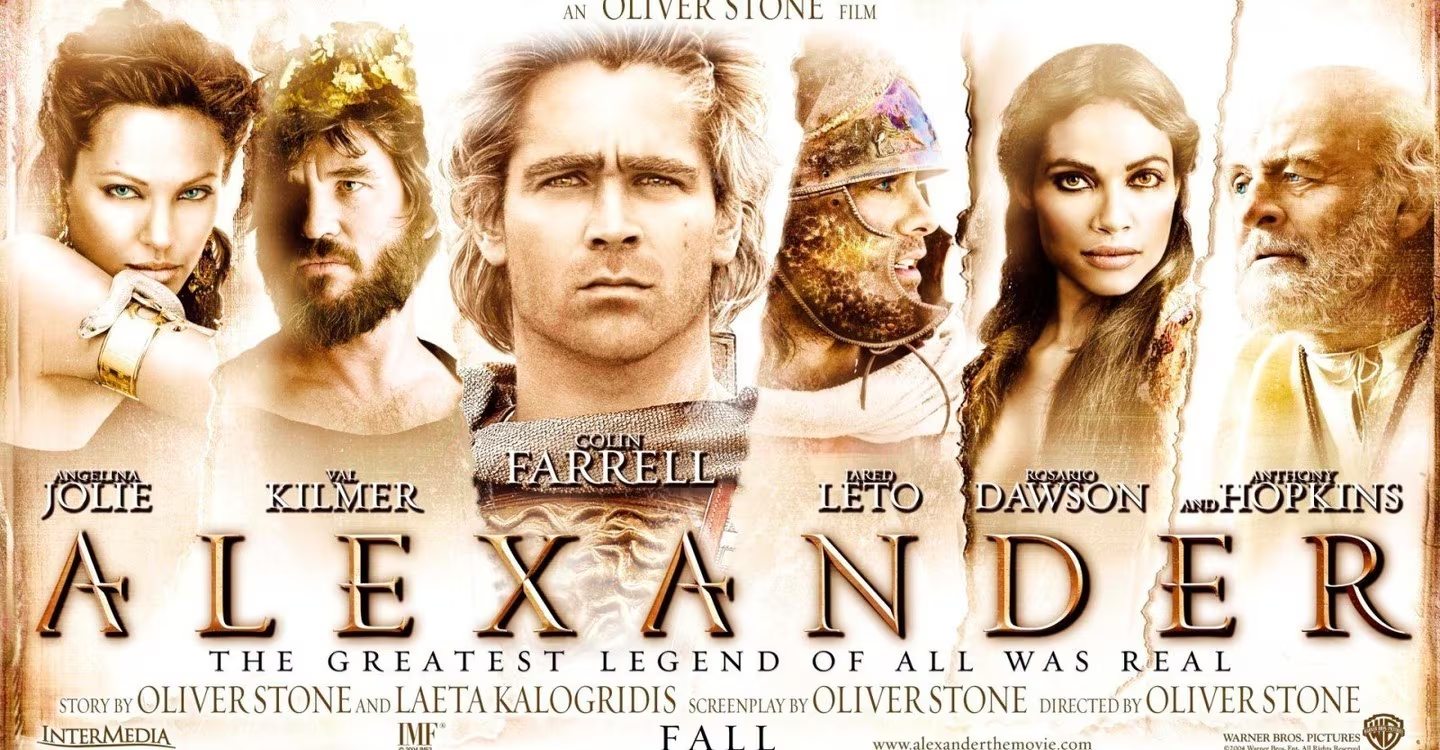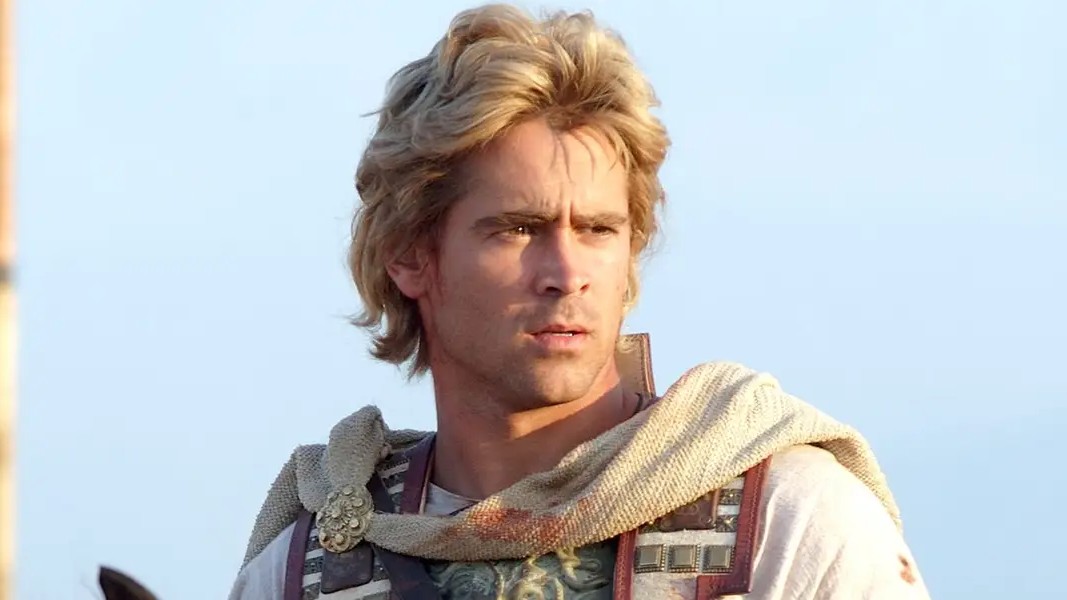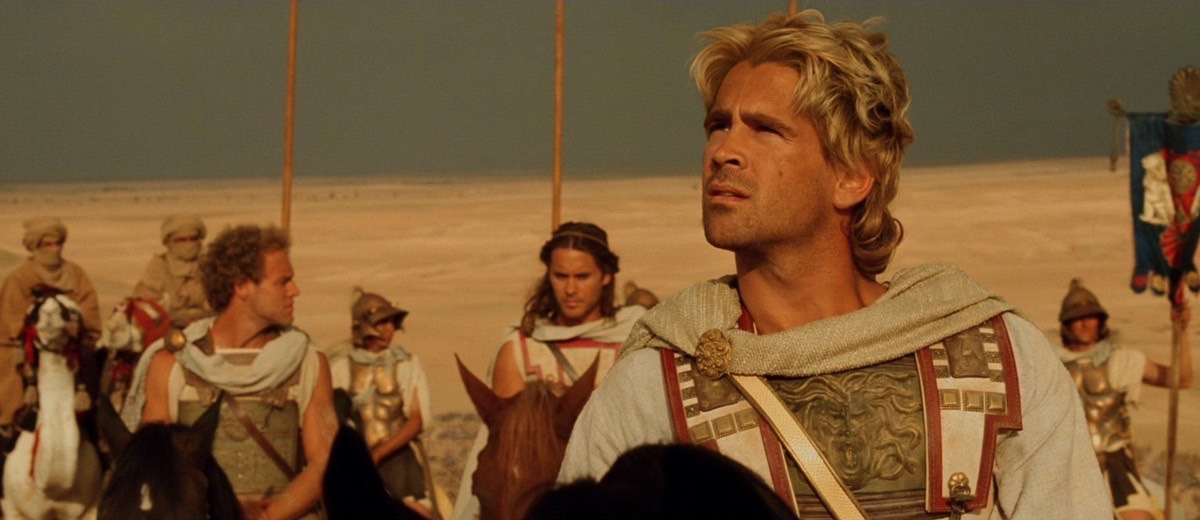🎬 Alexander (2004)
- vansinh
- February 2, 2025

Alexander (2004)
Alexander, directed by Oliver Stone, is an ambitious historical epic that chronicles the life and conquests of Alexander the Great, one of history’s most legendary military leaders. Starring Colin Farrell in the titular role, the film explores Alexander’s rise to power, his relentless ambition, and his complex personal relationships, set against the backdrop of breathtaking battle sequences and political intrigue.

The story unfolds through the narration of Ptolemy (Anthony Hopkins), one of Alexander’s generals, who recounts the Macedonian king’s extraordinary journey. From his early years under the influence of his parents—King Philip II (Val Kilmer) and Queen Olympias (Angelina Jolie)—to his education under the philosopher Aristotle (Christopher Plummer), the film presents Alexander as a man shaped by destiny. Despite the turbulent relationships with his parents—his father’s warrior mentality and his mother’s mystical ambitions—Alexander grows into a fearless and visionary leader.
 At the age of 20, Alexander inherits the throne of Macedonia after his father’s assassination. Determined to fulfill his father’s dream of conquering Persia, he embarks on an unprecedented military campaign that takes him across Asia, from Greece to Egypt, Persia, and eventually India. His army’s victories, including the legendary Battle of Gaugamela against King Darius III, solidify his reputation as an unmatched strategist. However, as his empire expands, Alexander’s leadership becomes increasingly complex. His growing obsession with his legacy, his adoption of foreign customs, and his relationships with his closest companions—particularly Hephaestion (Jared Leto) and his wife, Roxana (Rosario Dawson)—cause tensions within his ranks.
At the age of 20, Alexander inherits the throne of Macedonia after his father’s assassination. Determined to fulfill his father’s dream of conquering Persia, he embarks on an unprecedented military campaign that takes him across Asia, from Greece to Egypt, Persia, and eventually India. His army’s victories, including the legendary Battle of Gaugamela against King Darius III, solidify his reputation as an unmatched strategist. However, as his empire expands, Alexander’s leadership becomes increasingly complex. His growing obsession with his legacy, his adoption of foreign customs, and his relationships with his closest companions—particularly Hephaestion (Jared Leto) and his wife, Roxana (Rosario Dawson)—cause tensions within his ranks.
While Alexander is visually spectacular, featuring grand battle scenes and sweeping cinematography, it also delves into the psychological and emotional aspects of the legendary ruler. The film portrays Alexander as a man torn between his ambition, his ideals of unity, and the burdens of leadership. Colin Farrell delivers a passionate and intense performance, capturing both the strength and vulnerabilities of the historical figure. Angelina Jolie’s portrayal of Olympias adds a layer of intrigue, emphasizing the influence of Alexander’s mother in shaping his destiny.
Despite its ambitious scope, Alexander received mixed reviews upon release, with critics divided over its historical accuracy, pacing, and narrative structure. However, over time, the film has gained a cult following, particularly among those who appreciate its bold attempt to capture the complexities of one of history’s greatest figures. Oliver Stone’s director’s cut and later extended versions further refined the storytelling, offering a more cohesive and immersive experience.
 Ultimately, Alexander is a film that seeks to explore not just the battles and conquests, but the man behind the legend. It presents a ruler who was both visionary and flawed, a leader who achieved greatness but was haunted by his mortality. Whether seen as a grand historical epic or a deeply personal character study, the film remains an intriguing portrayal of one of history’s most fascinating and enigmatic figures.
Ultimately, Alexander is a film that seeks to explore not just the battles and conquests, but the man behind the legend. It presents a ruler who was both visionary and flawed, a leader who achieved greatness but was haunted by his mortality. Whether seen as a grand historical epic or a deeply personal character study, the film remains an intriguing portrayal of one of history’s most fascinating and enigmatic figures.











